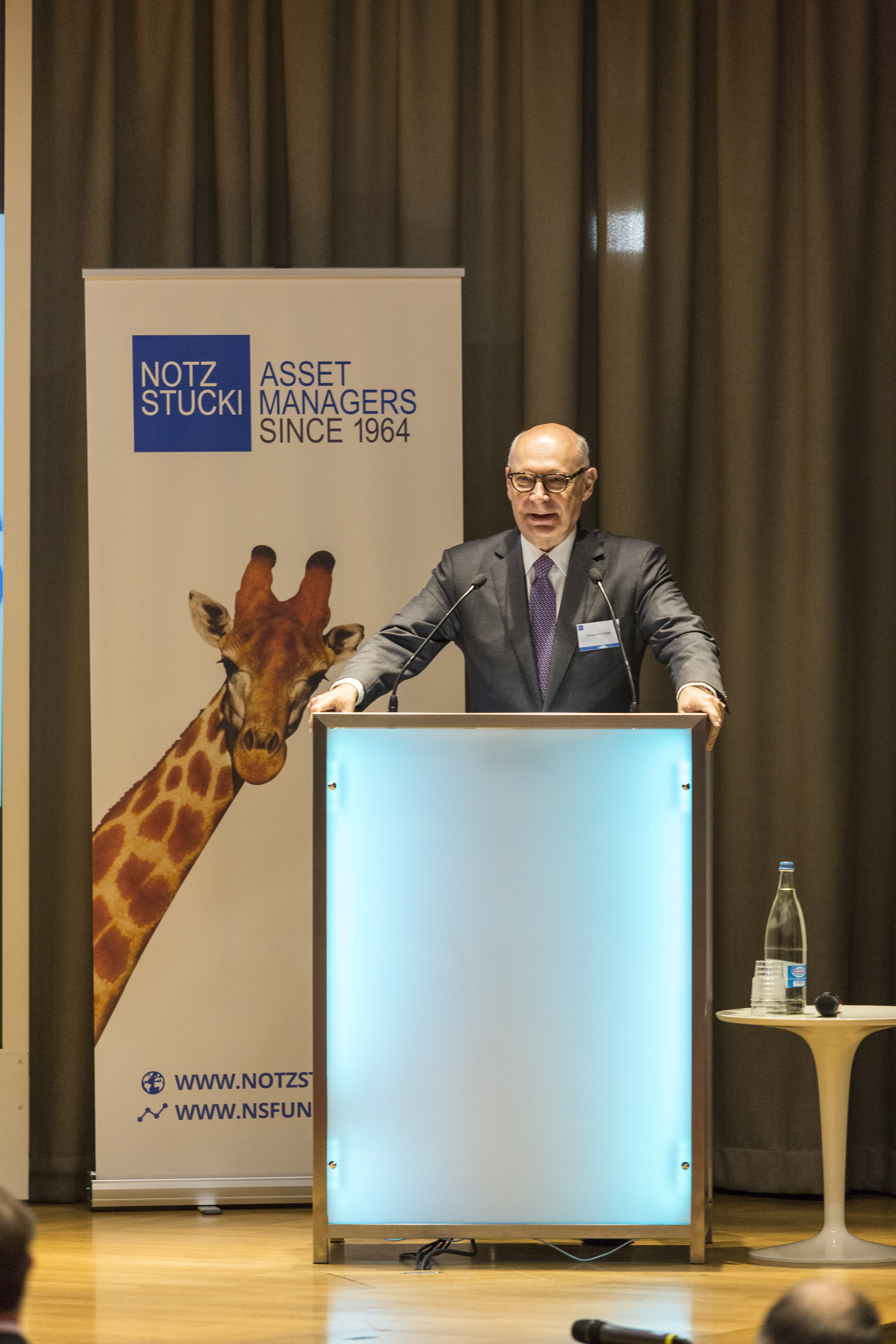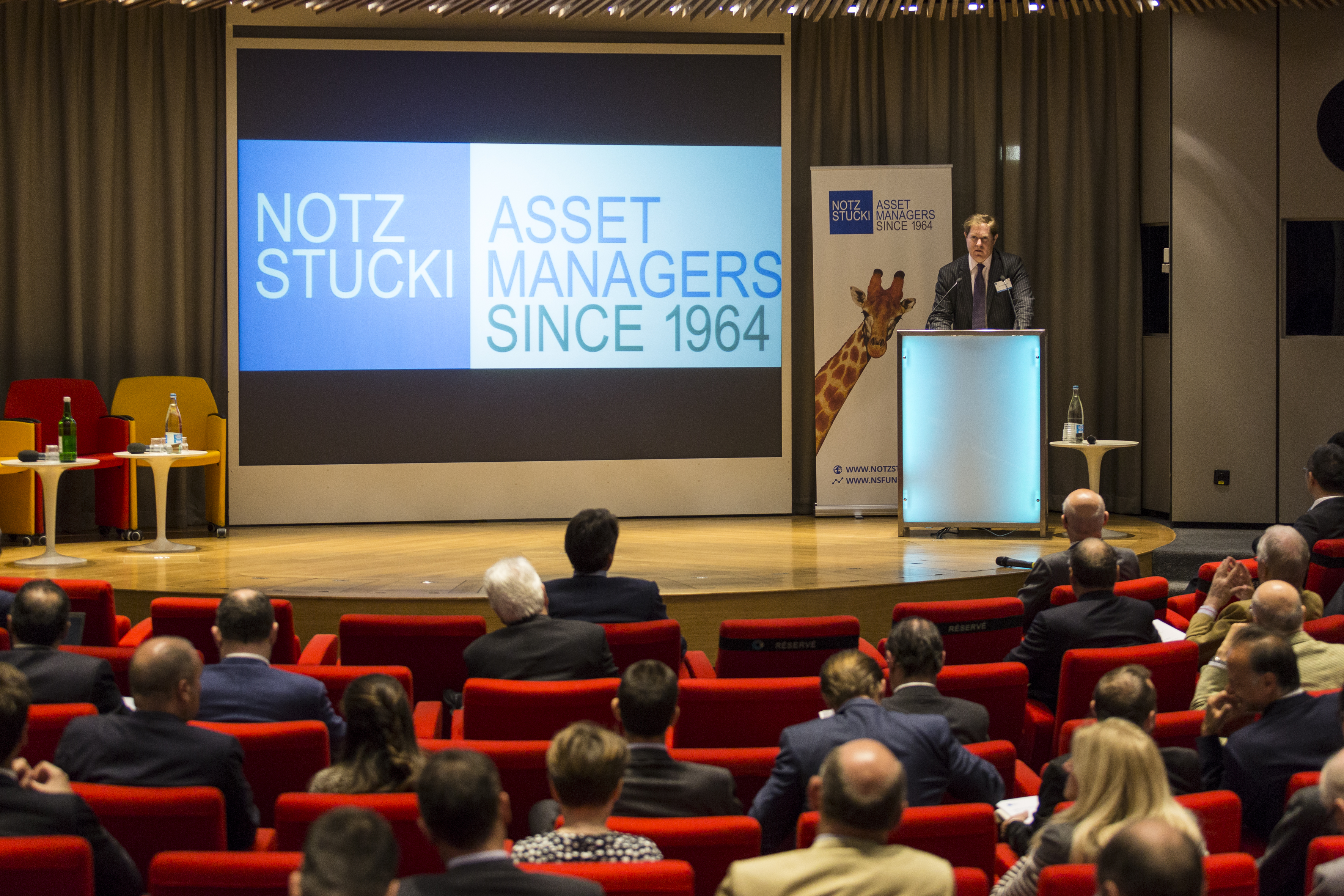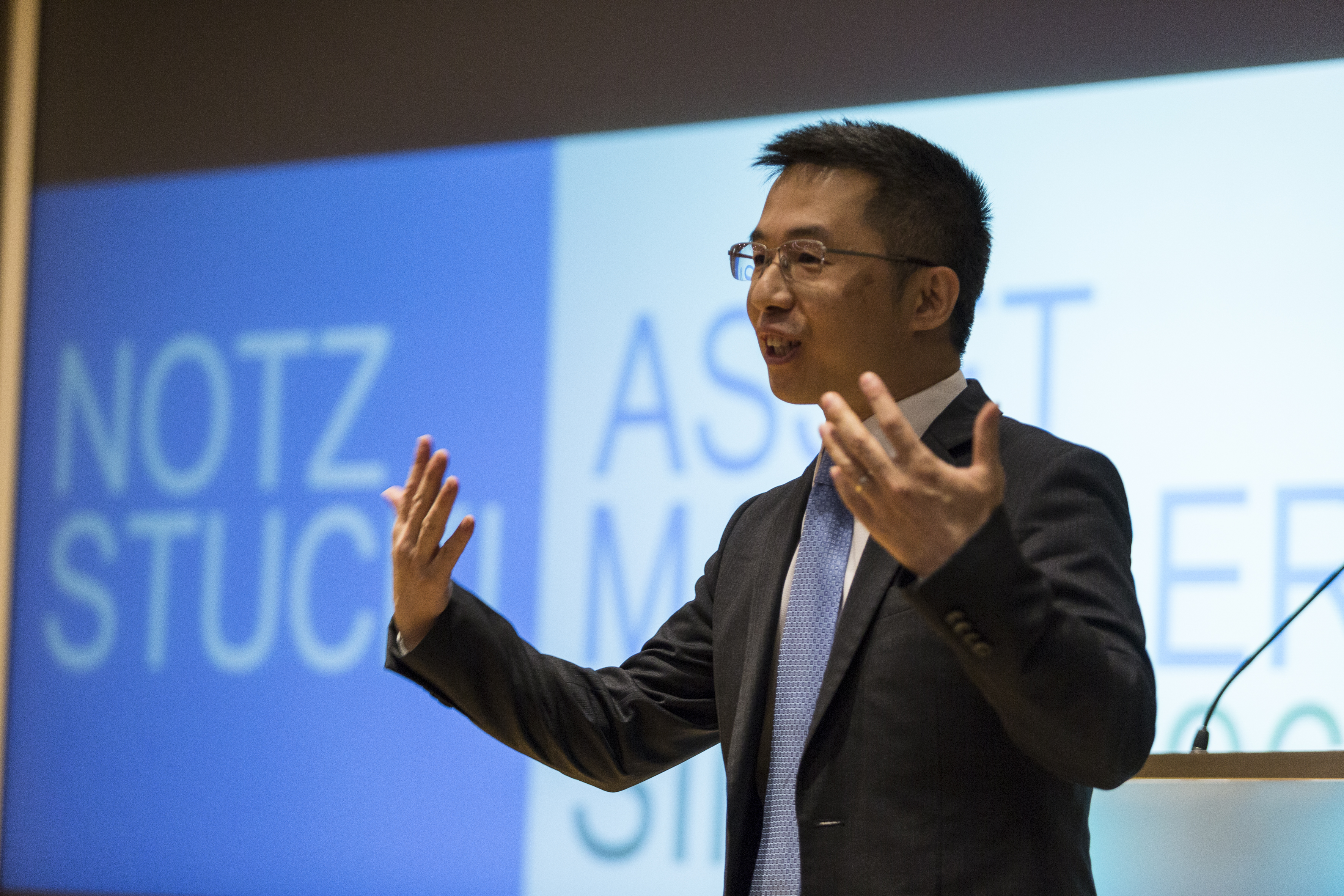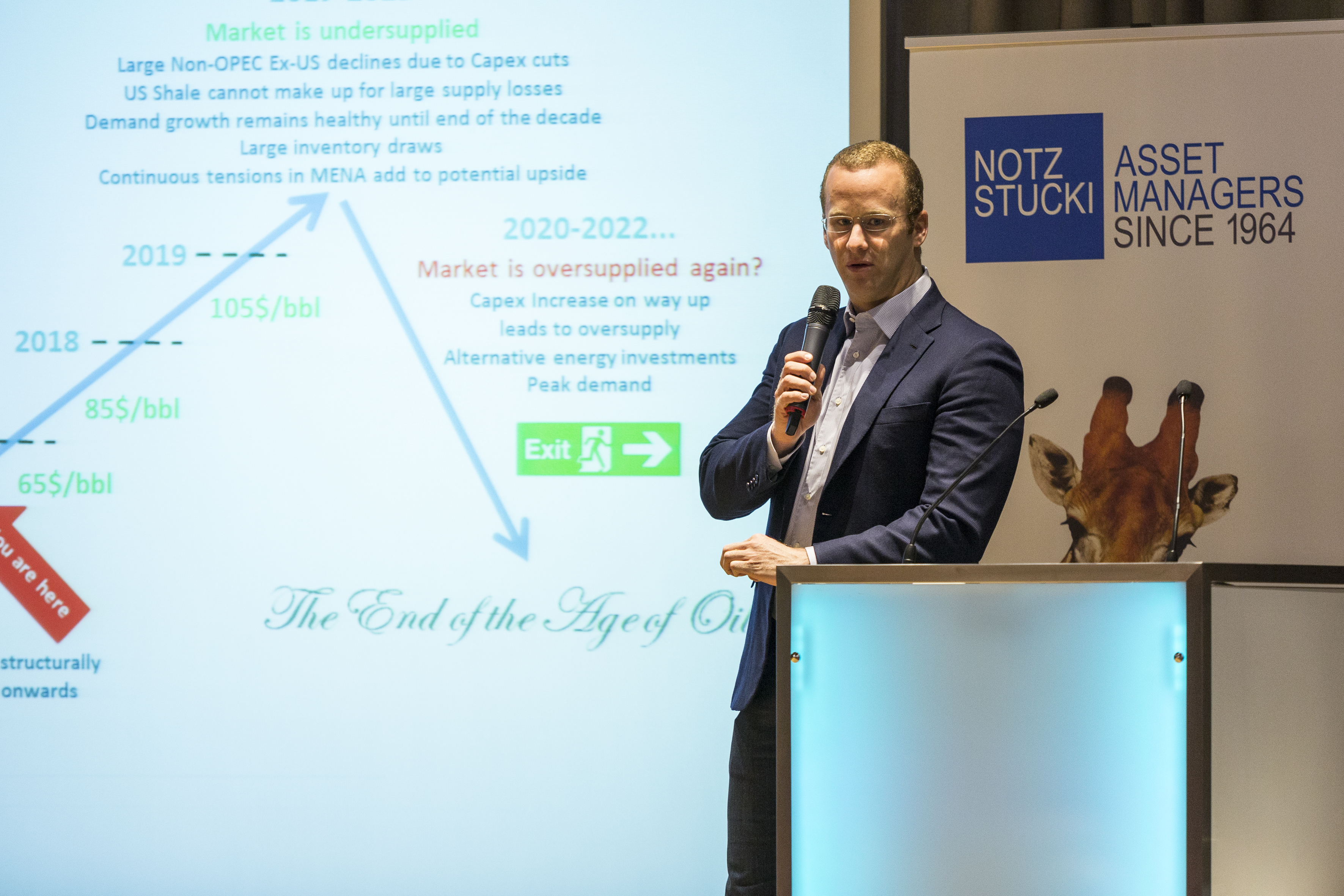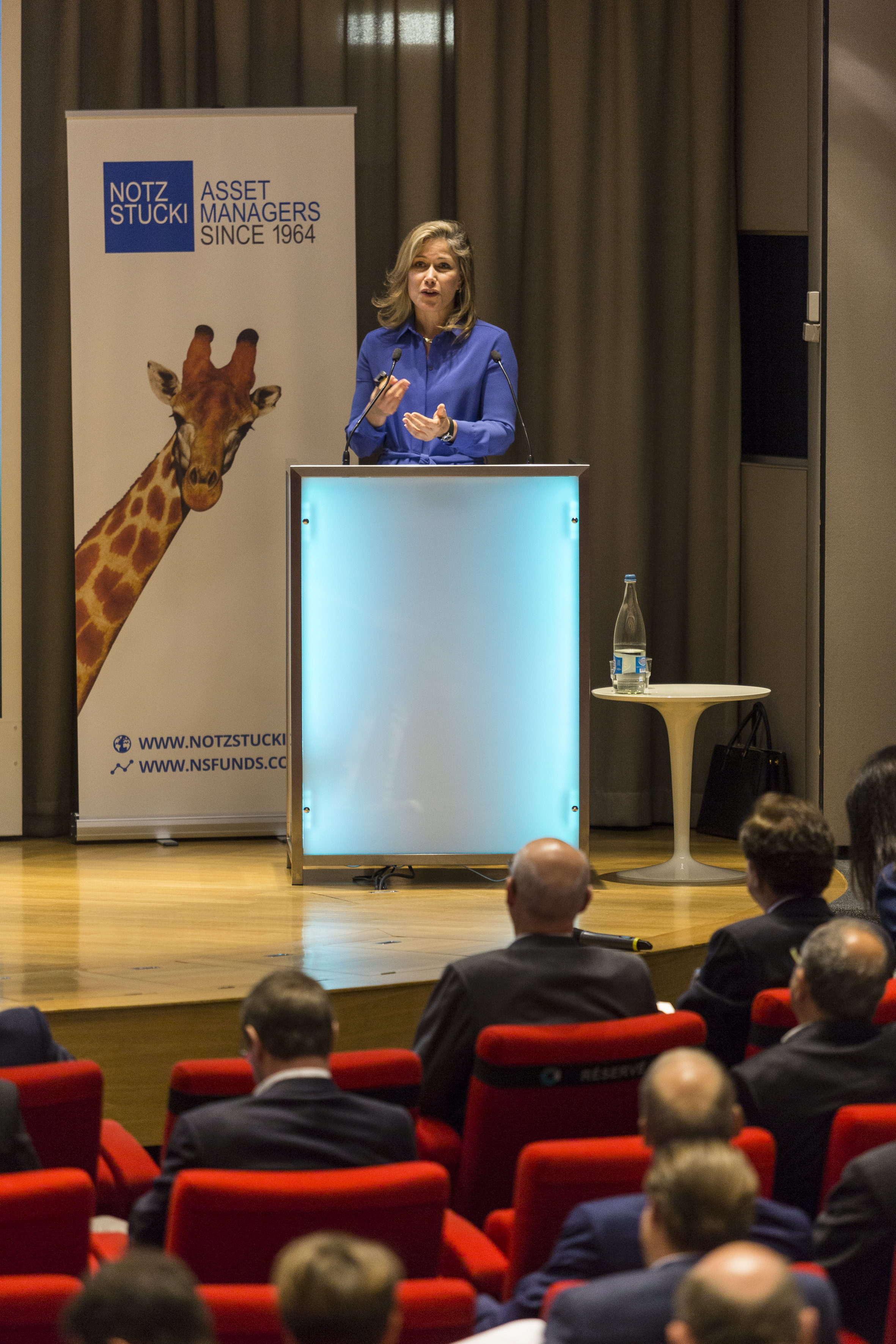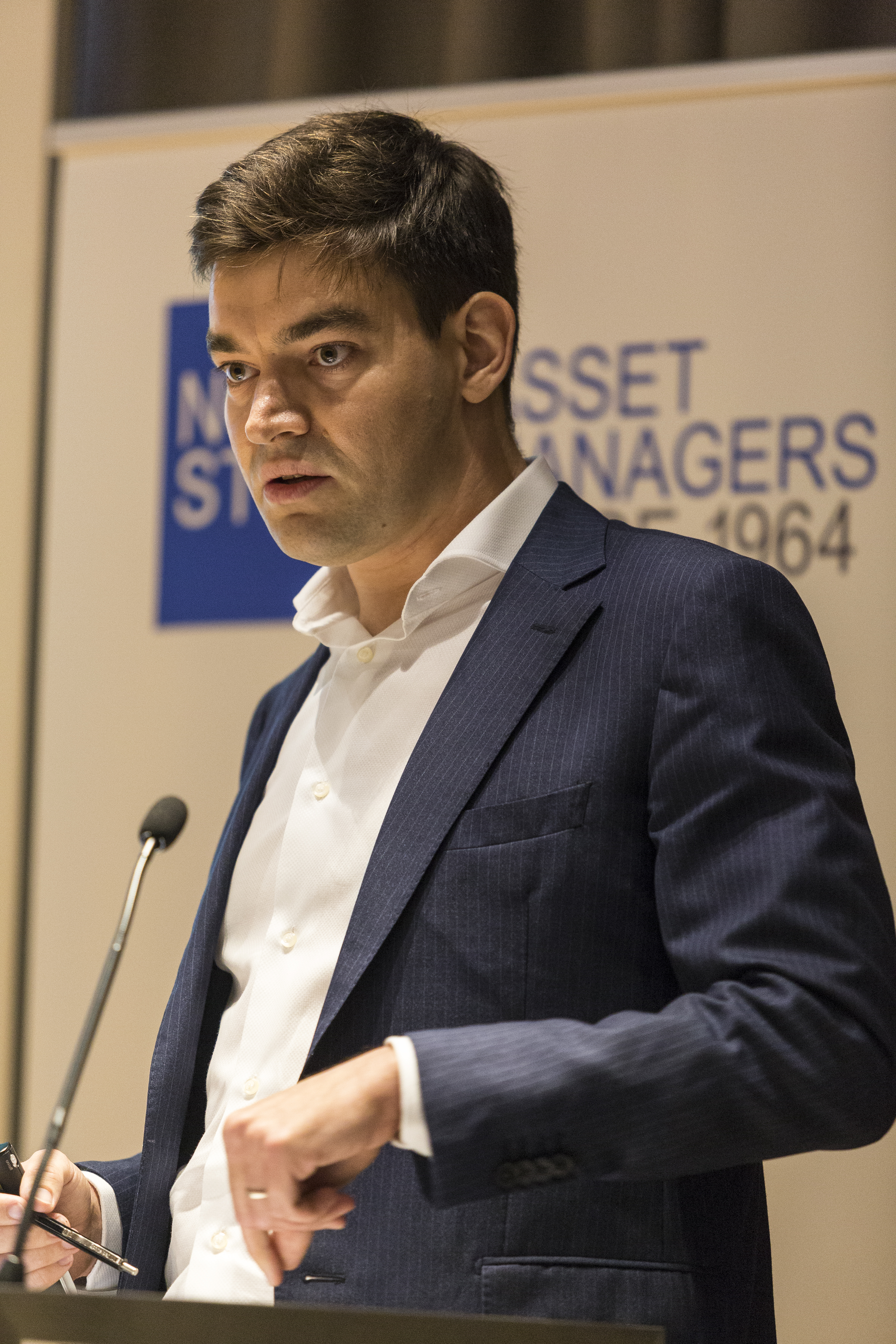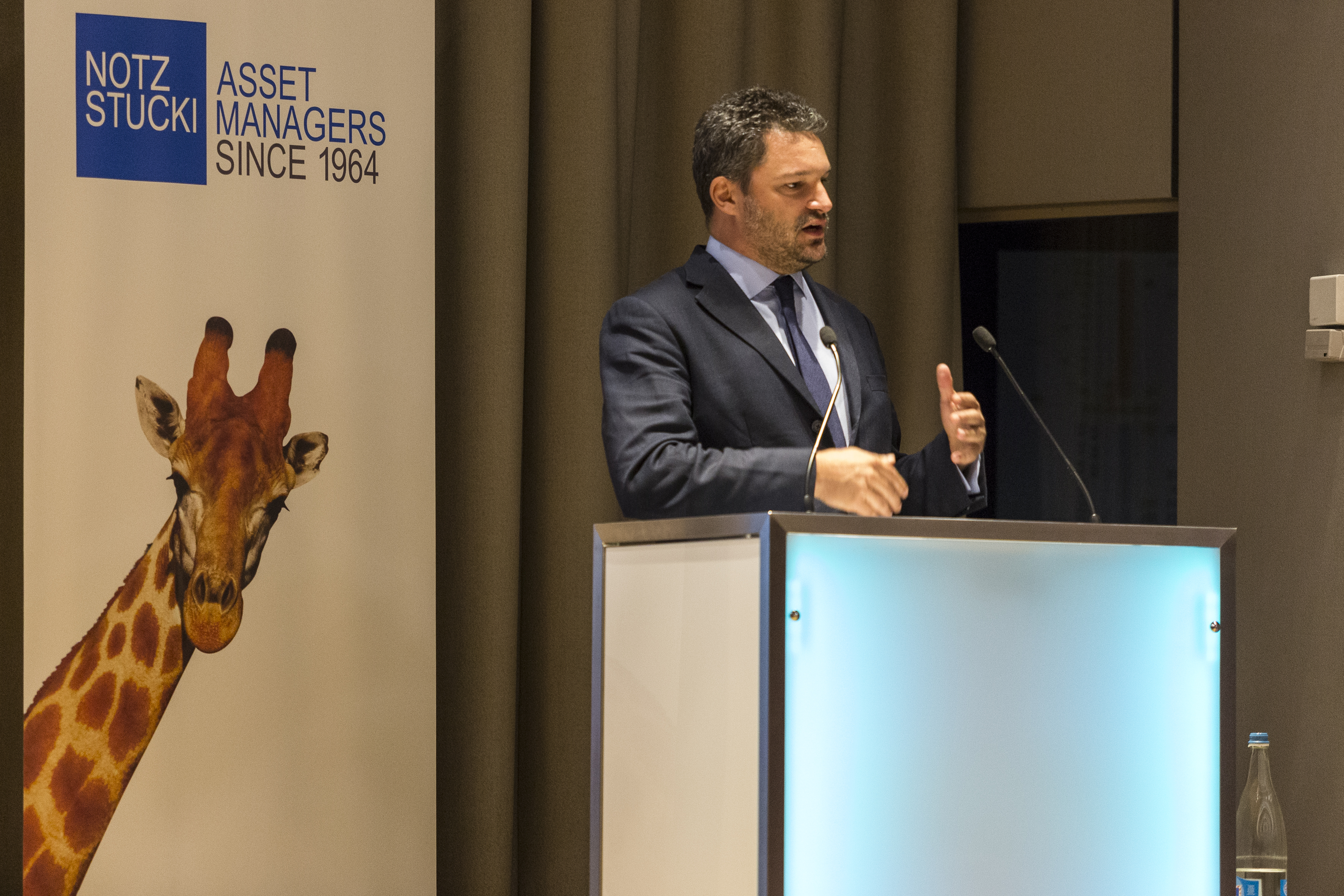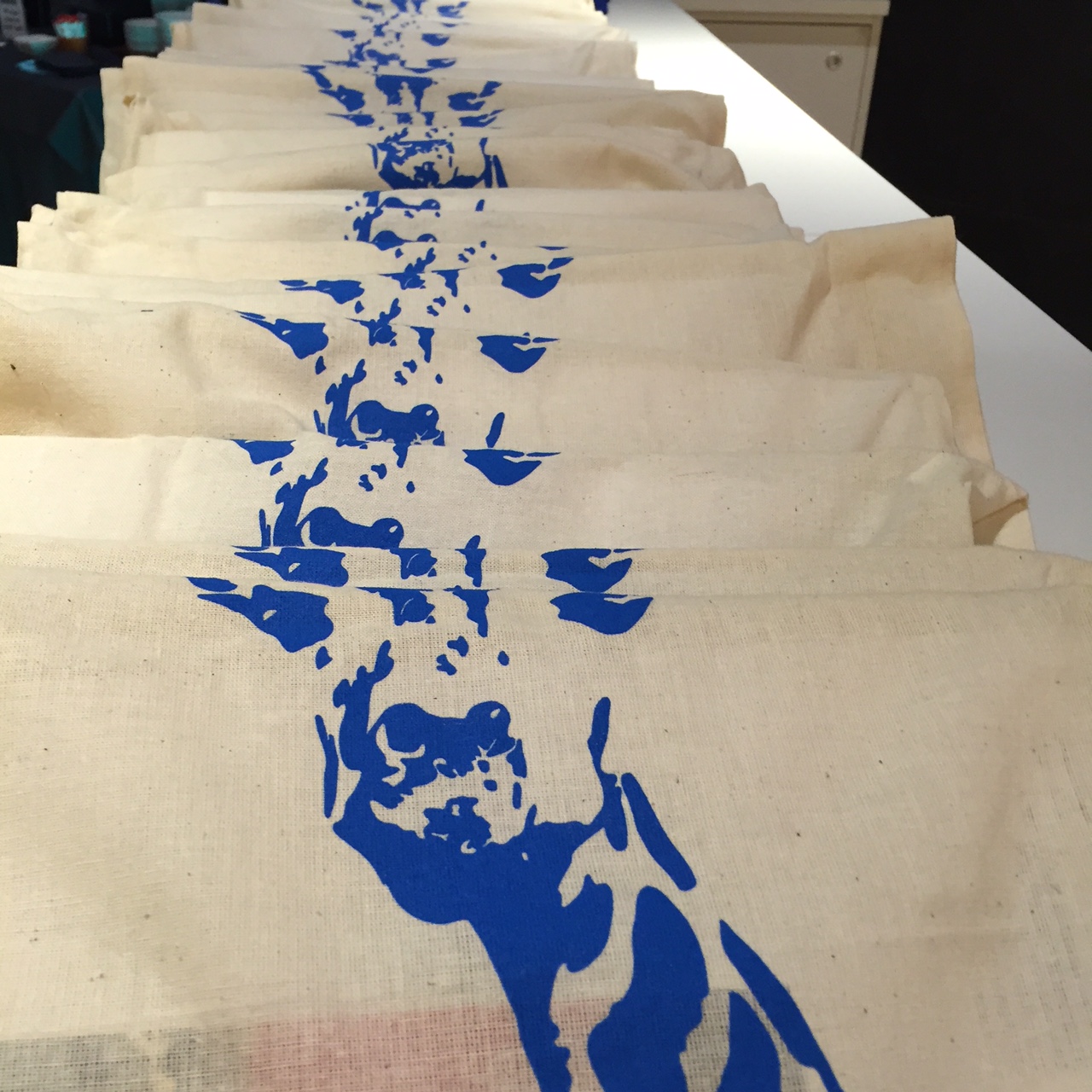On the occasion of its semi-annual Investment Conference in Geneva held June 28th, 2016, Notz Stucki welcomed the following guest speakers:
Louis-Vincent Gave, CEO, GaveKal
Ronald Chan, Portfolio Manager, Zeal Asset Management
Leda Braga, CEO, and Grégoire Dooms, Product Manager, Systematica Investments
Pierre Andurand, CIO & Managing Partner, Andurand Capital
Here are the notes on the conference.
The unexpected result of the UK referendum last Thursday caught markets completely off guard. This was understandable given that all the polls (again) and the bookmakers had predicted a victory for Remain, and markets had been positioning accordingly. As voting closed on Thursday night the leader of UKIP (the UK Independence Party) gave a concession speech. When the result came through for Exit the surprise was total. All equities fell dramatically, sterling fell heavily and peripheral European bonds yields rose. Gold was one of the few financial assets to rise. However gradually the market reaction has become more discriminating and even by the end of Friday some companies share prices were up, mostly those with significant dollar earnings. Indeed the UK FTSE 100 index was slightly up last week. Importantly the markets traded smoothly. There were no flash crashes, or counter party issues. So far, at least, the market plumbing has proved resilient, in marked contrast to the chaos that ensued in 2008 when Lehman collapsed.
The British vote was a surprise but can be viewed as a spectacular piece of democracy in action. The 17.4 million who voted in favour of exit represent the largest block of votes in the country’s history. Ultimately this protest vote has its roots in the 2008 crisis, being a decisive rejection of the advice of the Establishment. The Prime Minister, all living ex-Prime Ministers, 75% of the Members of Parliament, the Bank of England, The Treasury, the IMF, President Obama and many others all counselled a Remain vote with dire warnings of the consequences if the opposite course was followed. The vote was swung by those who have seen little of the recovery since the crisis. Their wages and living standards have been stagnant in contrast to the obscene wealth funnelled on to a few elite. In fact it is rather surprising that it is the UK that has delivered this verdict, being the country in Europe that has enjoyed the strongest growth rate and reasonably strong employment. Clearly a period of great uncertainty now looms for both the UK and Europe as they work out a new accommodation; a difficult task anyway made more challenging by the political vacuum in the UK and Europe’s fragile economic recovery. The vote threatens one of the EU’s great achievements which is cross-border flow of people and goods. To the extent that Brexit encourages other separatist movements around Europe, the EU’s ability to govern itself in a coherent way will diminish. The EU is already looking dysfunctional on security (its lack of a firm response to events in Ukraine), and immigration. It is also failing to deliver prosperity. Growth rates have been poor, youth unemployment is at criminal levels in several countries, and trade agreements proceed at a pace set by the most reluctant member. It still has no trade agreement in place with the US, Japan, China, or India. The EU’s response to Brexit could be to increase federalism and go for full fiscal and transfer union, a solution that Germany has always resisted. Or the electoral Stauffenberg delivered by the British could coax some reforms in an institution that is famously resistant to change. If reform led to growth then last week’s vote is not a disaster but a catalyst for an improved framework. As Charles Gave has written ‘Last Thursday’s referendum delivered the best European news since Margaret Thatcher became British Prime Minister in 1979. Thatcher’s election marked the point when the ‘evil empire’ started to retreat.’
One hopes Charles is right but the fruits of such a victory are long term in nature. Short term the markets face great uncertainty. Besides Brexit the US bull market is showing signs of age, China’s economy has been slowing, and Japan continues to struggle. Many emerging markets, particularly those linked to oil, have also had problems. Europe is the world’s largest economic bloc and it is hard to see businesses committing to big investment plans or large job hires.
How will the authorities respond? This will be critical for markets because the bull market has been built on Central Banks providing liquidity. Asset prices have been underpinned by investors’ belief that policy makers will continue to print money. Broadly there are two responses which would have opposite outcomes. They could view the Brexit vote and the astonishing populist success of Donald Trump in the US as a game changer. Instead of printing money and supporting financial assets which has proved to be welfare for the rich and accentuated the differences in society, they could re-orient policy towards fiscal plans to help the poor with more social spending. This is most likely if policy makers actually succeed to be elected to office. In this scenario all assets that have been propped up by Central Banks like OECD bonds and defensive equities should be sold. Alternatively, and this is the more likely outcome, they could redouble their efforts and increase QE. This would underwrite current bond and equity markets, and could extend further and support areas like emerging markets and gold.
The Chinese economy has slowed from its previous pace but remains healthy by global standards. Absent a currency or banking crisis, which Gavekal do not expect, China’s prospects look better. The Chinese government has engineered a stimulus which has led to a rebound in property. Growth in wages of 10% p.a. is helping consumption. Moreover China has considerable firepower. It enjoys a $600bn trade surplus, the biggest of any country in history. If further QE takes place then China’s interest rates should fall further from the current relatively high level of 4%. After five years of poor investment returns a base is forming for a new bull market. However considerable care is needed as profitability has proven elusive in China. Whereas in the West the lack of wage growth has meant profits have boomed, in China the 10% wage growth means that the benefits of growth have gone to labour not shareholders, which is in keeping with the Communist Party’s desire to maintain social stability. The shares that will benefit will be those outside China that gain from more Chinese affluence, and only selectively those inside China.
Markets enter the summer holiday period in a nervous state. The fallout from last week’s vote could yet give rise to a financial accident with Europe’s fragile banking system the most likely cause of problems. The political upheavals are clearly a dampener on business sentiment and the likelihood is that most companies will sit on their hands for the next few months while they try to get greater visibility on what the eventual outcome in Europe will be. Meanwhile an unpleasant US Presidential election is underway which will dominate headlines till November. However absent a fresh shock markets are likely to drift over the summer with low interest rates and QE offsetting low growth. It is not a comfortable environment but it is always in the periods where negative sentiment is greatest that the best opportunities appear. This should push investors to put greater attention on Emerging Markets which have had a poor run for the last five years, and perhaps Europe which has underperformed the World market by 40% in the last seven years. However it is unfortunately also a moment where politics has become an unusually strong influence on markets and the heightened uncertainty caused by Brexit means that it would be unwise to take any strong positions till some clarity returns.
Written by James Macpherson
Please click here to access the speakers’ presentations (a password is required and has been sent to the attendees by email – please contact Notz Stucki in case you haven’t received it).
If you attended the event, we would be grateful if you could please fill in our short survey to let us know your feedback on the format and content of the conference.
Here are a few pictures of the event…
